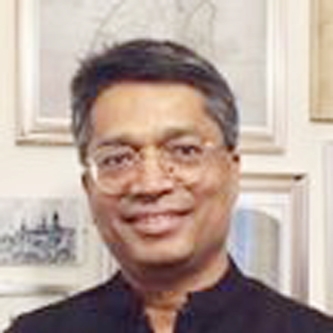
Ashok Swain :
For more than a decade, the world has been witnessing the rise of right-wing populism. Per se populism is not an ideology but a formula to capture power through electoral means.
Democracy does not need to be young or weak for populism to succeed. The relationship between populism and democracy is bi-directional – not only does populism weaken, it may even “destroy” democratic institutions. A weak democracy can lead to the rise and victory of populist leaders.
What is the formula that makes right-wing populists popular? That recipe consists of three basic ingredients: a) creating a discourse that the country is something special compared to others to stoke pride and fear, b) dividing the society into two distinct camps, the pure and hardworking majority vs. the crooked elites and indolent minority, and c) controlling the media to the maximum as that only can help them to sell distorted facts and imaginary history to the electorates.
Media domination
Media domination is crucial for the right-wing populist forces and their charismatic leaders. That provides them with a different historical period and wider constraints on evaluating their performances and behaviour than the leaders of regular institutionalised political parties.
No other type of regime uses and manipulates the media more than the right-wing populist regimes. Media freedom is essential in itself, but when it gets repressed in a democracy, it adversely affects policymaking and policy implementation and dangerously erodes the core of the democracy.
Right-wing populist regimes do not necessarily bring the media directly under state control. They use indirect methods but in a very organised and consistent manner. They put all sorts of pressure and provide several incentives on the media house owners to support and promote their political agenda.
And, if they refuse to do so, the government works towards ownership changes using regulatory and financial pressures. The populist forces also target honest journalists by discrediting, harassing, and even jailing them. For creating the fear factor among their peers, even some journalists get subjected to physical violence.
Seeking public attention
All political actors in an electoral democracy strive to get public attention and primarily depend on media coverage. Blaming media is also a common strategy that politicians use to defend their records, particularly at the time of elections. Right-wing populist leaders are different from their traditional counterparts. While populists malign the mainstream media as corrupt and biased, they selectively support and promote a specific group of media houses and give interviews to a selective group of journalists.
The right-wing populists also don’t follow the established media manners by not meeting the press regularly or excluding some journalists, walking out from talk shows, and often using `politically incorrect’ languages in their speeches and interviews. These ‘bad behaviours’ help them promote their ‘authenticity’ and project them as representative of common people, not the corrupt elites.
Populist forces, besides capturing the media houses, controlling professional journalists, and redefining media etiquette, also create their alternative media. Supporters of right-wing populists bring out newspapers, news websites, television networks, and online media platforms to discredit mainstream media.
These right-wing propaganda platforms continuously accuse the established media and professional journalists of suppressing the voices and issues concerning the majority community and siding with the minority or migrants. The traditional media is also often portrayed as working in the interest of foreign forces and oblivious to national interest and the country’s global image.
Incriminating traditional media
The right-wing’s alternative media platforms incriminate the traditional media by accusing it of influencing public opinion by managing and manipulating the information flow, censoring populist leaders’ views, and creating distorted sociopolitical and economic narratives.
They also push the storyline that the established media acts as a mouthpiece of the crooked elites. The right-wing media often blame the traditional press for not offering balanced and impartial coverage of news stories.
Media platforms of the populist forces attack the integrity of professional journalists to delegitimise established media, which helps the populist leaders manipulate public opinion by creating a public discourse based on half-truths and alternative facts. On the other hand, these coordinated and calculated attacks by right-wing populist forces push most professional journalists to adopt self-censorship for their personal safety.
Right-wing populists leave no stone unturned to remove the media from its role as the watchdog. An independent press in a democracy helps inform the public and tries to hold leaders to account. In the absence of an independent media, the populist regimes get a free hand to abuse power. Traditional political opposition parties do not get a level playing field to win elections.
The free press can’t disappear forever in a democracy. History has many examples of media freedom bouncing back in struggling democracies if given the opportunity. But, the return of media freedom is not possible as long as right-wing populists rule. Populists first need to go for the free press to make a comeback.
(Ashok Swain is a Professor of Peace and Conflict Research, at Uppsala University, Sweden. Courtesy: Gulf News).

